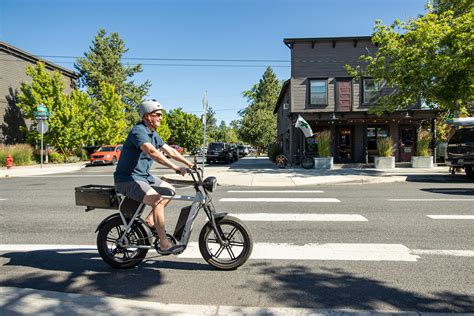As urban areas grapple with increasing congestion and environmental challenges, innovative solutions are essential for sustainable transportation. One such solution gaining traction in Minnesota is the electric bike (ebike) rebate program. Launched to promote cleaner transportation alternatives, this initiative is transforming how residents navigate their cities. In this article, we’ll explore the program’s background, its benefits for urban transport, and the potential impact on Minnesota’s communities.
Understanding the Ebike Rebate Program
The Minnesota ebike rebate program was initiated to encourage more residents to opt for electric bicycles as a means of transportation. An ebike is a bicycle equipped with an electric motor that assists with pedaling, making it easier to travel longer distances and tackle hilly terrains without excessive effort.
The state offers financial incentives to make owning an ebike more accessible. Residents can receive a rebate of up to $1,500 for purchasing a new ebike, depending on the type and price of the bike. This direct financial aid is aimed at making ebikes an attractive alternative to cars, especially for short-distance commuting.
Boosting Urban Mobility
Urban transport is often plagued by issues such as traffic jams, parking shortages, and air pollution. Minnesota’s ebike rebate program addresses these concerns by promoting a shift towards cycling as a primary mode of transport. Ebikes can help reduce dependence on personal vehicles, subsequently lessening traffic congestion and harmful emissions.
With ebikes being a quicker and more efficient way to navigate urban landscapes, commuters are presented with a viable solution that can save time and reduce stress. Studies indicate that short trips frequently account for a significant portion of urban commutes. By incentivizing ebikes for these journeys, cities can free up road space and enhance overall traffic flow.
Environmental Impact
One of the most significant advantages of transitioning to ebikes is the positive environmental impact. Traditional vehicles contribute to air pollution and greenhouse gas emissions, worsening climate change and public health issues. Ebikes, on the other hand, generate zero emissions during use. By encouraging their adoption, Minnesota is taking a substantial step towards reducing its carbon footprint.
Moreover, ebikes use less energy than cars, even when considering the electricity required for charging. Minnesota aims to create a cleaner, greener urban environment through this initiative, aligning with broader sustainability goals and fostering a healthier lifestyle among its residents.
Economic Benefits
Besides environmental advantages, the ebike rebate program promotes economic benefits. Local bike shops may see an increase in sales due to higher demand for electric bicycles. Furthermore, the program can stimulate job growth in related sectors such as bike manufacturing, maintenance, and tourism.
As more people choose ebikes over cars, spending on fuel, insurance, and maintenance can also decrease. This shift allows residents to allocate their resources more wisely, potentially leading to increased spending in local businesses and supporting Minnesota’s economy.
Accessibility and Inclusivity
An essential aspect of the ebike rebate program is its focus on ensuring access for all communities. The initiative aims to reduce barriers to ebike ownership, making this sustainable transportation mode available to low-income residents and those in underserved areas. Additional funding options and partnerships with local organizations are critical to making bicycles an equitable transportation choice.
These efforts not only promote inclusivity but also contribute to enhancing public health by encouraging physical activity. Cycling is an excellent way for residents to maintain an active lifestyle, positively impacting overall well-being and community vitality.
Transportation Infrastructure Improvements
Alongside incentivizing the purchase of ebikes, Minnesota is also investing in the infrastructure necessary for safe and efficient cycling. This includes dedicated bike lanes, parking facilities, and improved pedestrian pathways, which together create a more bike-friendly environment.
These enhancements can stimulate further interest in cycling as a viable means of transport. As residents see a commitment to developing safe cycling routes, more will likely transition to using ebikes for commuting, leisure, and fitness.
Challenges Ahead
While the ebike rebate program shows great promise, challenges remain. One of the key hurdles is public awareness. Many residents may not be familiar with ebikes or the benefits they offer. Ongoing marketing and educational campaigns are crucial to inform the community about the program and its advantages.
Additionally, there are concerns regarding the maintenance of ebike infrastructure and the need for ongoing investment to ensure that the program remains sustainable and effective in the long run. Policymakers must stay ahead of these challenges to ensure that Minnesota’s ebike revolution continues to thrive.
Conclusion
Minnesota’s ebike rebate program is a transformative initiative in urban transport. By promoting electric bicycles as a sustainable, accessible, and practical alternative to cars, the program demonstrates a genuine commitment to enhancing mobility, reducing environmental impact, and fostering community well-being. As urban areas continue to grow and evolve, embracing alternative transportation options like ebikes will be crucial in shaping a more sustainable future.
FAQs
- What is an ebike?
- An ebike is a bicycle equipped with an electric motor that helps with pedaling, allowing for easier and faster travel compared to traditional bicycles.
- How much can I receive from the ebike rebate program?
- Eligible residents can receive a rebate of up to $1,500 for purchasing a new ebike, depending on the type of bike and its price.
- Who is eligible for the rebate?
- Eligibility typically includes Minnesota residents who meet specific income and residency requirements. Detailed information can be found on the official program website.
- How can I apply for the rebate?
- Applications for the rebate program can be submitted online through the official Minnesota transportation website, where you will also find further instructions and details.
- Does the rebate program apply to used ebikes?
- Currently, the program is primarily focused on new ebike purchases, but specific eligibility criteria may vary, so it’s best to check the latest guidelines.
Download Mn Ebike Rebate Program
